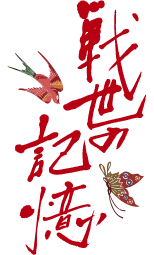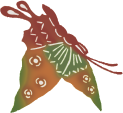
“A boy’s experiences during the war in Kumejima”
“A boy’s experiences during the war in Kumejima”
Shosei Yamashiro, 79 years old
(Place of birth: Nakazato, Kumejima Village, Okinawa Prefecture)
During the war, the soldiers kept saying, “We will win without fail,” but, in the meantime, they forced us to dig air-raid shelters in our homes. I believe if the top-ranked Japanese officer had said, “Since the likelihood of winning the war is very low, we will quit fighting the war,” the nuclear bombs would never have been dropped. I also believe if the war had ended even one day earlier, the number of deaths in the southern area of the Okinawa Main Island would have been much smaller.
I was a first grader back then. We, however, rarely had school lessons because of the training for the war held every day. We had the training for how we should escape from danger when the air-raid alarm was on. We also were forced to do bamboo spear training by stabbing huge straw figures we made.
During the air raid on October 10, 1944, many airplanes flew overhead. We dashed out to the playground and kept shouting “Banzai! Banzai!” while the planes were flying high up in the air because we thought they were Japanese planes. However, when we saw the star marks on the planes as they came down, we heard young men yelling, “They are enemies!” and we were completely taken by surprise. I wonder if they knew that it was a school, because they did not shoot any bullets. None of the students were shot to death. However, the air raid on that day made me feel that the war really started.
The departure of a passenger boat was postponed on the day the boat was scheduled to leave the port due to some information that was delivered. The boat left the port on the next day and was attacked and sunk. The boat was filled with residents of the islands, and on that day, most of the young people from Kumejima Island had died. My elder brother and young men living next door who were all drafted and had to leave the island for the service.
Since Kumejima Island was under indiscriminate attack, most villages were attacked. The villages which were most severely attacked and damaged were those on the coast. As the airplanes might fly over during the night for an air raid, someone called out “Do not let them see your lights and be careful when using fire.” When our light was visible from outside, young women warned us saying, “They can see your light, Yamashiro.” So, we covered our lamp with black wrapping cloth. Children were trained to escape from the air raid. There was a song and it goes, “When we hear an air raid alarm, let’s quietly move to an air-raid shelter. Take advice from the adults as we are very young. Do not panic. Don’t be noisy. Stay calm.”
Life back then was rough, but we would have had an even rougher life without sweet potatoes. We practically lived on sweet potatoes. In addition, when we prepared soup, we had kudzu vines as vegetables. We could find some wild vegetables such as toothed ixeridium (a type of dandelion) and Japanese mugwort and people contrived various ways to prepare them.
We built a cabin in the mountain, spread kudzu vines on the floor to make a mat and slept on the kudzu vines. We suffered from lice as we could not bathe.
(After the war)
Many American soldiers landed on the island and we found them not as brutal as we thought. They gave candies to children and said, “See, this is not poisonous,” after eating the candy by themselves in front of children. They seemed to be quite sympathetic.
There would be about 10 people who were shot and killed in the battle of Kumejima. I heard that 20 people or so were killed by Kayama (Masami Kayama, Chief Warrant-officer, Japanese Imperial Navy). He confined them, including children, in a straw-thatched roof house and set the house on fire. They were burned alive, I heard.
The guy called “Meiyuu Nakandakari” said, “Now the war is over. The Americans will not kill their prisoners,” then he was killed by Japanese Army. It was a terrible thing. In addition, some Japanese soldiers said, “I will kill this baby,” when a baby started crying. The other soldiers threw false accusations at the local young men that they were doing something bad with waxy rice in the mountain. The soldiers took them to the mountain. Then there was the sound of three gunshots. I heard that the young men were found dead the next morning and the soldiers were eating the rice. These savage acts, killing people in this brutal way, made me think that the real enemies were on our side.
I was a little boy back then and I remember many stories told by adults after the war. There seemed to be many soldiers who ran away. I heard that the subordinate of Kayama was shot to death by an American soldier and buried under the beach, currently called Eaf Beach.
(Looking back at the war)
Why did Japan go to the war? Why did Japan implement the suicidal attacks by the special attack corps? Since my childhood I’ve thought that it is a barbaric way to fight. When the war was over, we, the children, went to the beach to swim. We found friends there. That cheerful and happy feeling pleased me much more than delicious food.
To create a peaceful world, we need to unite the world as one and none of us should act overbearingly. We all need to unite our minds together as one. The young people in the current generation have the power of peace. I hope they will hold discussions to create something good and unite the world as one.
Shosei Yamashiro, 79 years old
(Place of birth: Nakazato, Kumejima Village, Okinawa Prefecture)
During the war, the soldiers kept saying, “We will win without fail,” but, in the meantime, they forced us to dig air-raid shelters in our homes. I believe if the top-ranked Japanese officer had said, “Since the likelihood of winning the war is very low, we will quit fighting the war,” the nuclear bombs would never have been dropped. I also believe if the war had ended even one day earlier, the number of deaths in the southern area of the Okinawa Main Island would have been much smaller.
I was a first grader back then. We, however, rarely had school lessons because of the training for the war held every day. We had the training for how we should escape from danger when the air-raid alarm was on. We also were forced to do bamboo spear training by stabbing huge straw figures we made.
During the air raid on October 10, 1944, many airplanes flew overhead. We dashed out to the playground and kept shouting “Banzai! Banzai!” while the planes were flying high up in the air because we thought they were Japanese planes. However, when we saw the star marks on the planes as they came down, we heard young men yelling, “They are enemies!” and we were completely taken by surprise. I wonder if they knew that it was a school, because they did not shoot any bullets. None of the students were shot to death. However, the air raid on that day made me feel that the war really started.
The departure of a passenger boat was postponed on the day the boat was scheduled to leave the port due to some information that was delivered. The boat left the port on the next day and was attacked and sunk. The boat was filled with residents of the islands, and on that day, most of the young people from Kumejima Island had died. My elder brother and young men living next door who were all drafted and had to leave the island for the service.
Since Kumejima Island was under indiscriminate attack, most villages were attacked. The villages which were most severely attacked and damaged were those on the coast. As the airplanes might fly over during the night for an air raid, someone called out “Do not let them see your lights and be careful when using fire.” When our light was visible from outside, young women warned us saying, “They can see your light, Yamashiro.” So, we covered our lamp with black wrapping cloth. Children were trained to escape from the air raid. There was a song and it goes, “When we hear an air raid alarm, let’s quietly move to an air-raid shelter. Take advice from the adults as we are very young. Do not panic. Don’t be noisy. Stay calm.”
Life back then was rough, but we would have had an even rougher life without sweet potatoes. We practically lived on sweet potatoes. In addition, when we prepared soup, we had kudzu vines as vegetables. We could find some wild vegetables such as toothed ixeridium (a type of dandelion) and Japanese mugwort and people contrived various ways to prepare them.
We built a cabin in the mountain, spread kudzu vines on the floor to make a mat and slept on the kudzu vines. We suffered from lice as we could not bathe.
(After the war)
Many American soldiers landed on the island and we found them not as brutal as we thought. They gave candies to children and said, “See, this is not poisonous,” after eating the candy by themselves in front of children. They seemed to be quite sympathetic.
There would be about 10 people who were shot and killed in the battle of Kumejima. I heard that 20 people or so were killed by Kayama (Masami Kayama, Chief Warrant-officer, Japanese Imperial Navy). He confined them, including children, in a straw-thatched roof house and set the house on fire. They were burned alive, I heard.
The guy called “Meiyuu Nakandakari” said, “Now the war is over. The Americans will not kill their prisoners,” then he was killed by Japanese Army. It was a terrible thing. In addition, some Japanese soldiers said, “I will kill this baby,” when a baby started crying. The other soldiers threw false accusations at the local young men that they were doing something bad with waxy rice in the mountain. The soldiers took them to the mountain. Then there was the sound of three gunshots. I heard that the young men were found dead the next morning and the soldiers were eating the rice. These savage acts, killing people in this brutal way, made me think that the real enemies were on our side.
I was a little boy back then and I remember many stories told by adults after the war. There seemed to be many soldiers who ran away. I heard that the subordinate of Kayama was shot to death by an American soldier and buried under the beach, currently called Eaf Beach.
(Looking back at the war)
Why did Japan go to the war? Why did Japan implement the suicidal attacks by the special attack corps? Since my childhood I’ve thought that it is a barbaric way to fight. When the war was over, we, the children, went to the beach to swim. We found friends there. That cheerful and happy feeling pleased me much more than delicious food.
To create a peaceful world, we need to unite the world as one and none of us should act overbearingly. We all need to unite our minds together as one. The young people in the current generation have the power of peace. I hope they will hold discussions to create something good and unite the world as one.


